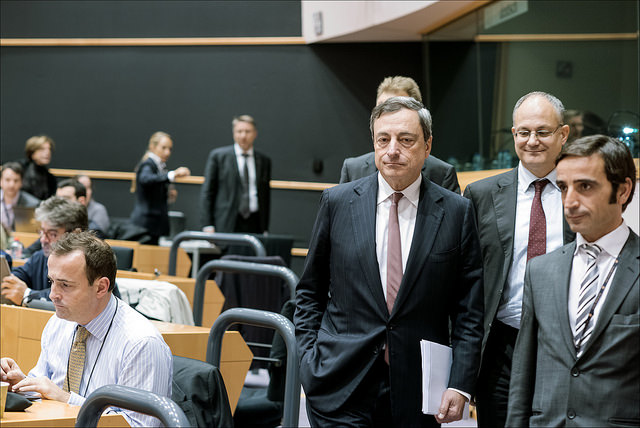The Greek population voted “NO” by a comfortable margin (61%- 39%) and handed the Syriza government another political victory. This will probably energize Prime Minister Tsipras and his team, but will also create huge uncertainty over the future of Greece in the Eurozone and lead to intensifying immediate economic hardship in Greece. At this time it remains unclear if and when banks will be able to re-open. Also, it might well be that deposit and savings haircuts (of those people the Syriza government claims to protect) will be on the table to prevent complete banking sector meltdown.
Without a deal in the near-term between Greece and its creditors, a renewed and sharp recession in Greece seem likely. Both length and depth of such a contraction are still very uncertain and will depend on the evolution of domestic politics within Greece, the ability to get some kind of a deal that will allow for Greece to stay within the Eurozone or the social and political stability in the aftermath of Grexit.
Three elements now key to watch
NN Investment Partners thinks there are three elements will be key to watch in the ECB’s policy response to this political crisis. The way the Emergency Liquidity Assistance (ELA) is managed (to what extent will it remain open for Greek banks), the application of haircuts to the collateral that Greek banks need to post at the ECB and new measures to tackle liquidity issues in other parts of European financial markets. The balance between these three potential ECB measures will be crucial for the sentiment in financial markets and, thereby, the degree of damage to the European economy.
“In the end, however, we have a high conviction that the ECB is willing and able to limit lasting damage from short-term contagion into other European markets. Especially since it is now operating against backdrop of a more unified political front in all of the other member states of the Eurozone that will allow for effective political support for creative policy action, if needed”, point out the firm.
This basically means that significant declines in some market segments (peripheral equities/bonds, European equities, the euro) over the next couple of days cannot be excluded, but also that Eurozone break-up risk remains very small. The latter is a completely different situation than 2-3 years ago and therefore leads to different investment conclusions. As long as the global cycle remains on track, the upcoming period of market volatility might provide an entry point for investors once visibility on the future direction for Greece increases and the accompanying policy response is clear.
“In the short-term, it keeps us cautiously positioned and more focused on reducing rather that adding risk. However, we’ll keep our asset allocation stance “close to the middle” and would only move more defensive once we see significant contagion in combination with disappointing policy response. For now, the latter is not our base case. As soon as more visibility on politics, policy and the impact on the global cycle is there, it could well be that we move back towards a more risk-on stance later in the summer. Obviously the situation remains very uncertain and we will be monitoring very closely if additional changes in our allocation stance are needed once the facts change in an unexpected way”, concluded.

